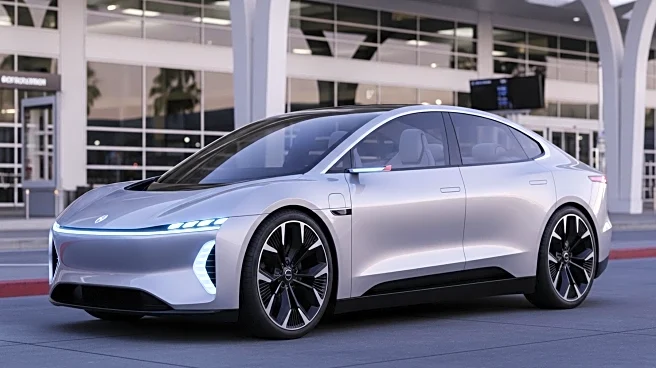What's Happening?
Tesla is in the process of seeking permits to operate a ride-hailing service at major Silicon Valley airports, including San Francisco, San Jose, and Oakland. This initiative is part of Tesla's broader strategy to expand its transportation services, which currently include a limited charter service in California. The company has reached out to these airports to inquire about the permit process, although no formal applications have been submitted yet. Tesla's current operations involve using its Full Self-Driving (FSD) software, which is an advanced driver-assistance system requiring driver supervision. To expand into a full-fledged ride-hail service, Tesla will need to secure permits from the California Public Utilities Commission and potentially the Department of Motor Vehicles if autonomous vehicles are involved. The California DMV has expressed concerns over Tesla's claims about its self-driving capabilities, which could complicate the permitting process.
Why It's Important?
Tesla's move to enter the ride-hailing market at key airports represents a significant step in the evolution of transportation services, particularly in the realm of autonomous vehicles. Airports are lucrative markets due to the high volume of travelers, making them attractive targets for companies like Tesla and Waymo, which has already established a presence at Phoenix's Sky Harbor International Airport. The success of Tesla's initiative could influence the broader adoption of autonomous ride-hailing services, potentially reshaping the transportation landscape. However, regulatory hurdles and the need for transparency in autonomous vehicle operations pose challenges that Tesla must navigate. The outcome of this endeavor could impact Tesla's market position and the regulatory framework governing autonomous vehicles in California.
What's Next?
Tesla's next steps involve formalizing its permit applications with the relevant authorities and addressing any regulatory concerns raised by the California DMV. The company will need to demonstrate compliance with safety and operational standards to gain approval for its ride-hailing services. Additionally, Tesla may face competition from other autonomous vehicle companies like Waymo, which is expanding its services in the region. The response from airport authorities and regulatory bodies will be crucial in determining the timeline and feasibility of Tesla's plans. Stakeholders, including local governments and the public, will likely scrutinize the safety and efficacy of Tesla's autonomous technology as the company progresses.









